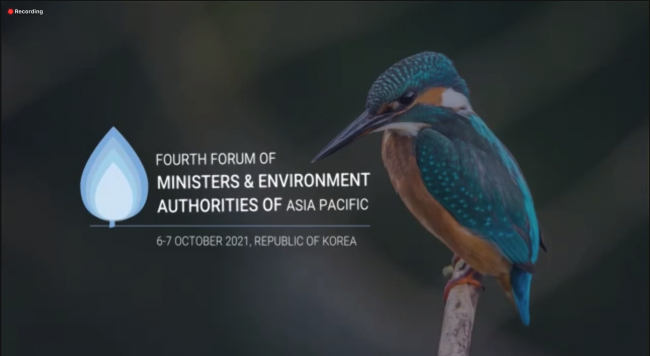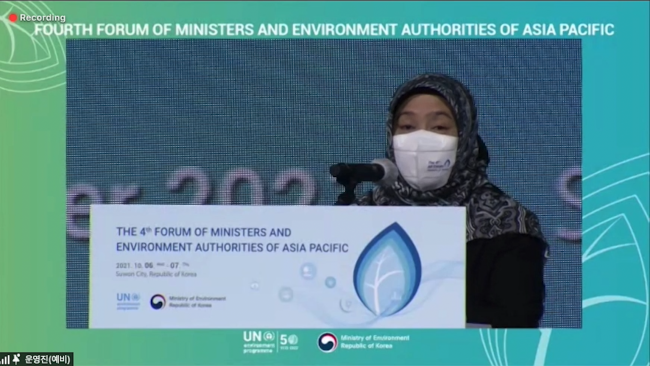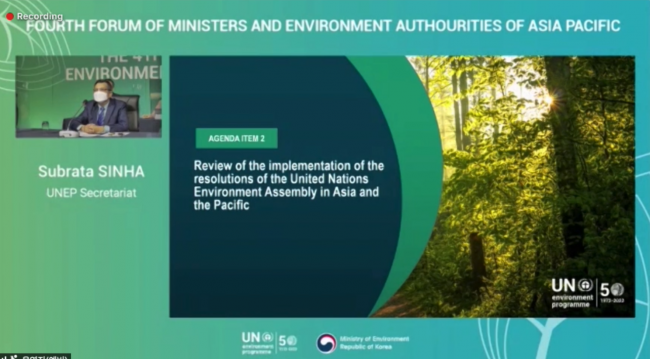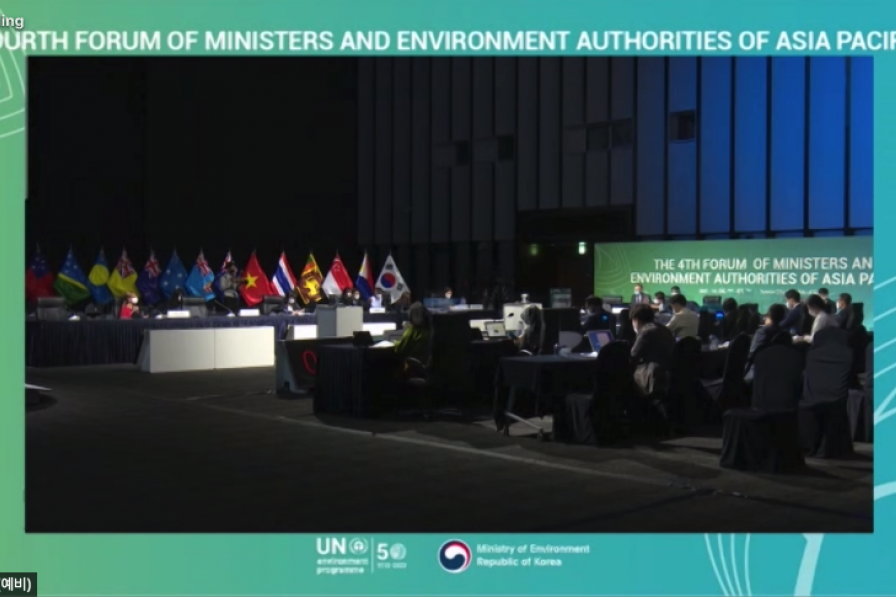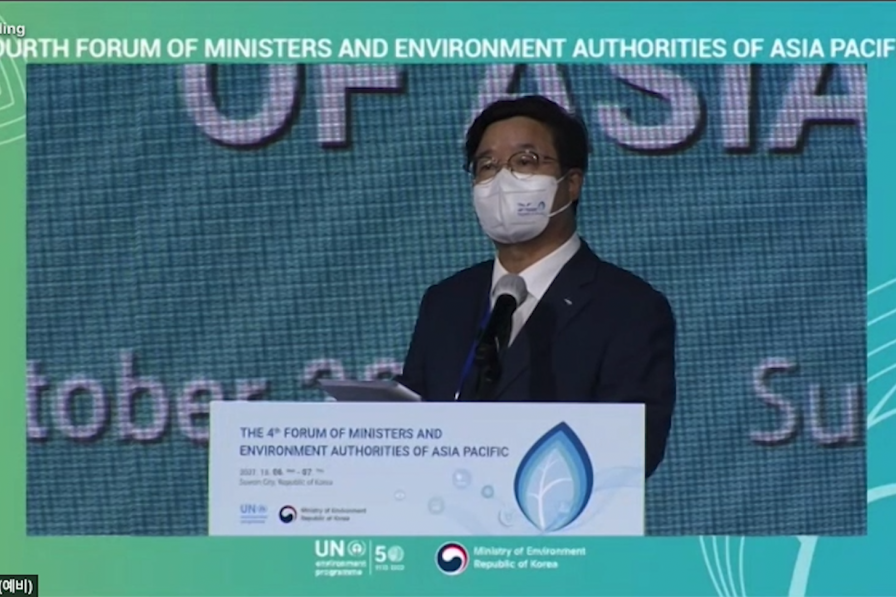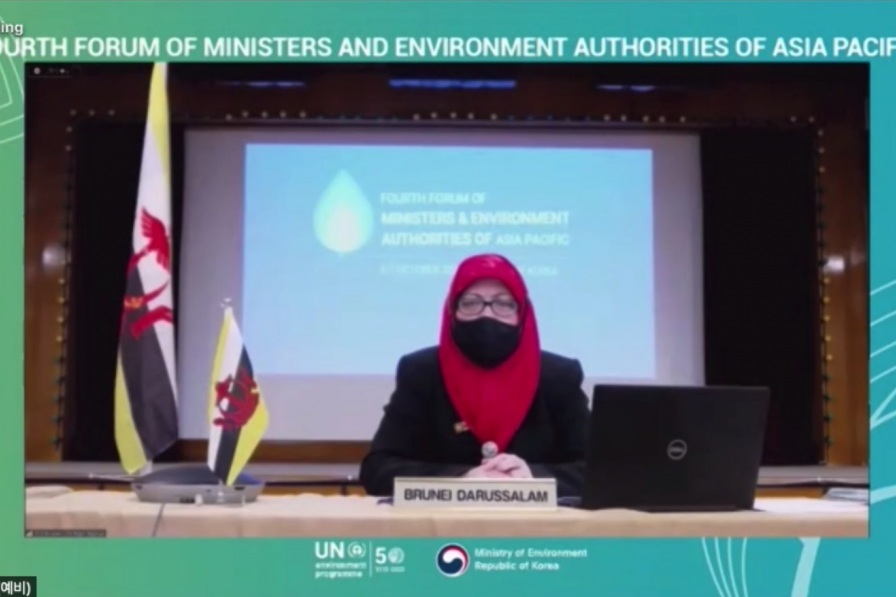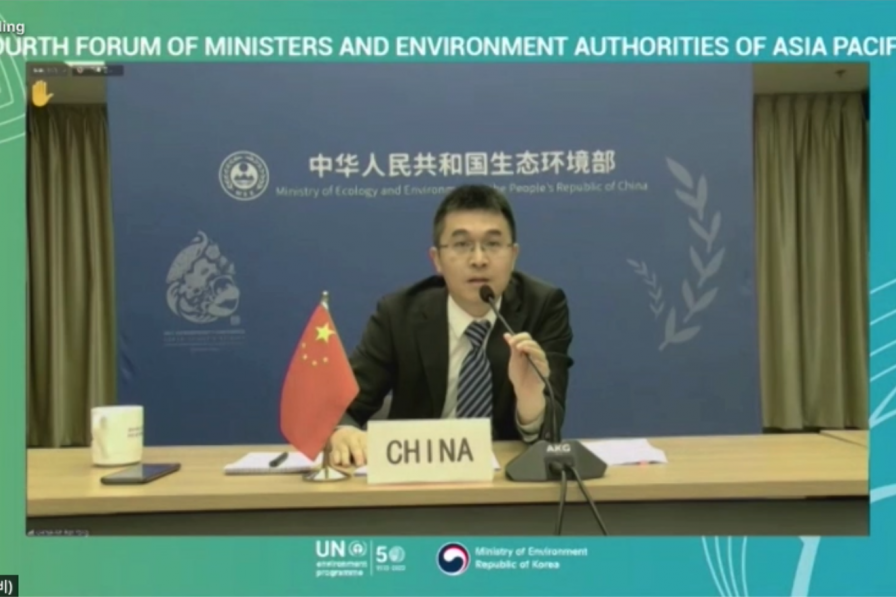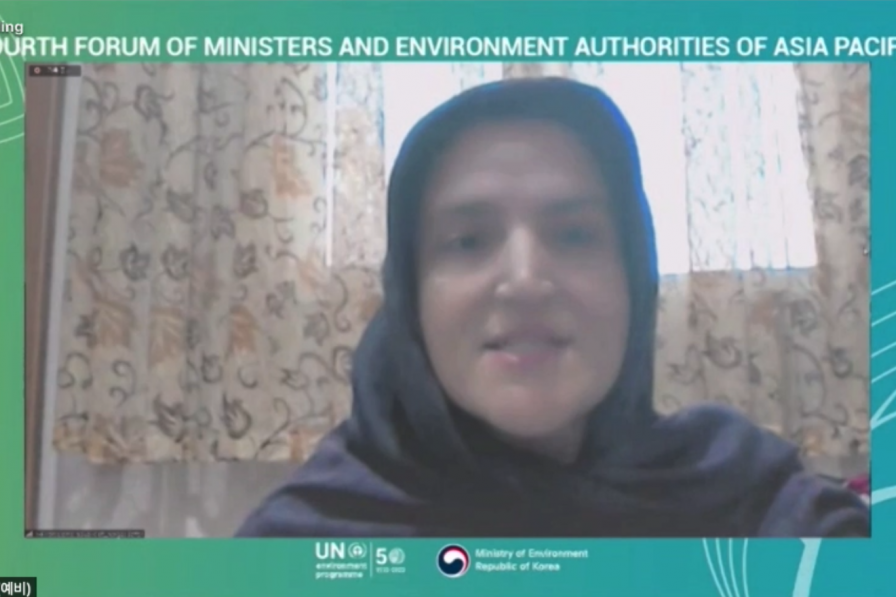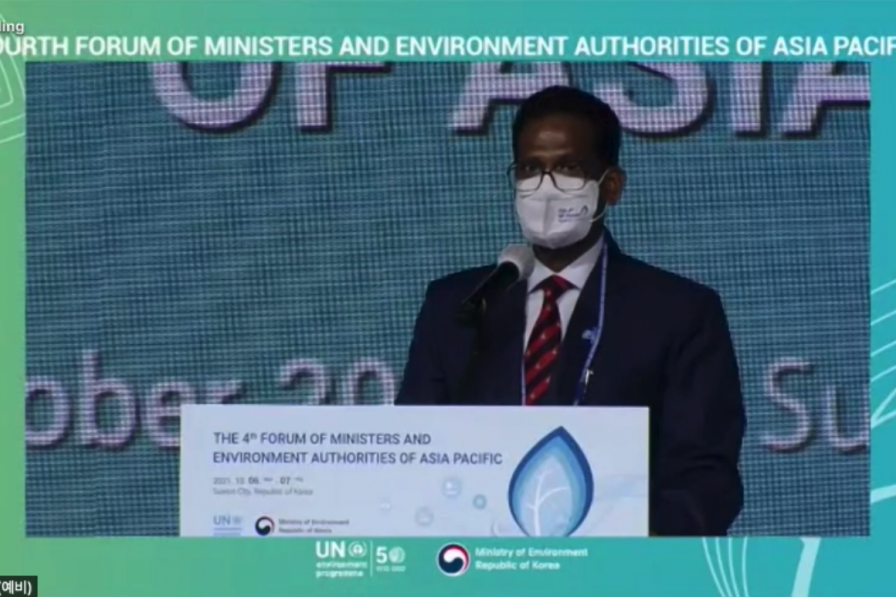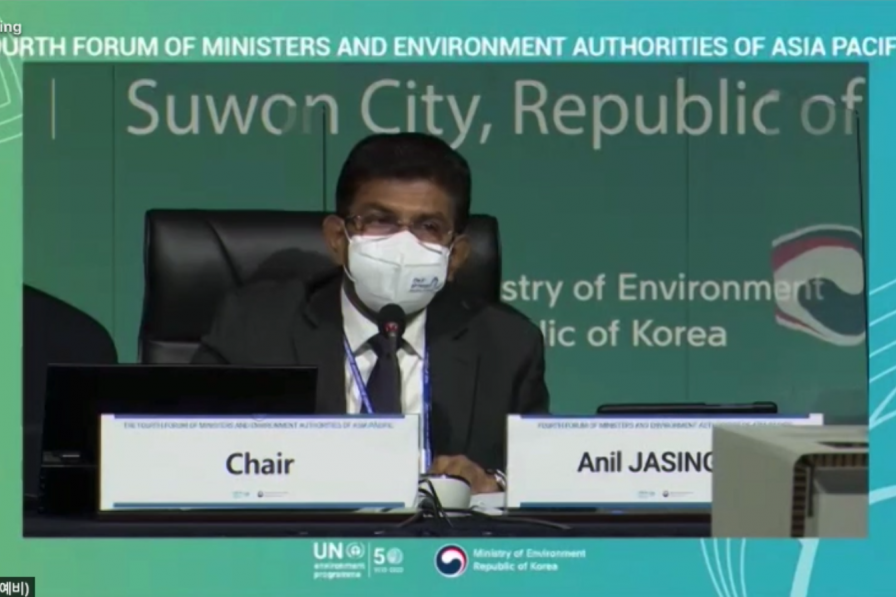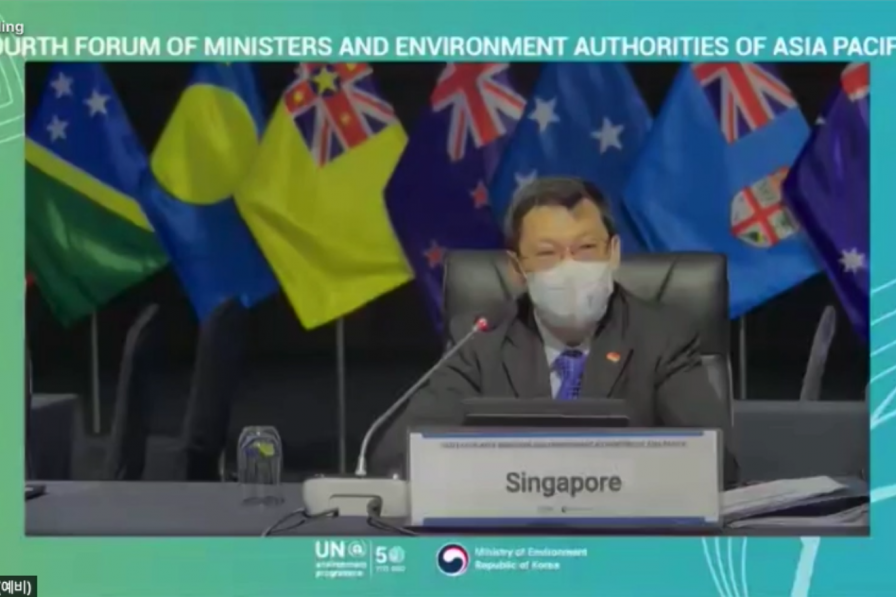Oceans and seas ranked high on the list of concerns at the 6 October Senior Officials Meeting preceding Thursday's Ministerial Forum. Much attention focused on countries’ actions to stem the tide of plastic waste, including action for clean seas, circular economy, and sustainable consumption and production.
The Republic of Korea (ROK) hosted this meeting, which was co-organized with the UN Environment Programme’s (UNEP) regional secretariat, as a hybrid event with around 390 delegates. Some high-level officials met in Suwon City, ROK, while most joined the meeting online.
Hong Jeong-kee, Vice Ministe of Environment, ROK, stated his country’s determination to increase support to help bridge the gap between developed and developing countries. He highlighted ROK’s bid to host the 28th session of the Conference of the Parties to the UN Framework Convention on Climate Change (UNFCCC COP 28) in 2023. Yeom Tae-young, Mayor, Suwon City, shared the city’s initiatives to launch net-zero climate coalitions.
Laksmi Dhewanthi, Vice President the fifth session of the UN Environment Assembly (UNEA-5), and Director General, Ministry of Environment and Forestry, Indonesia, emphasized the importance of sending a strong message of political will and progress on implementation in the Asia-Pacific region.
The Forum elected Anil Jasinghe, Ministry of Environment, Sri Lanka, as Chair of the Senior Officials Meeting. Eunhae Jeong, Director General, National Institute of Environmental Research, Ministry of Environment, ROK, and Monyneath Vann, General Secretariat of the National Council for Sustainable Development, Ministry of Environment, Cambodia, were elected Vice-Chairs.
The UNEP Regional Office for Asia and the Pacific (ROAP) reported on six focal areas of action in the region: climate change; healthy ecosystems; environmental governance; resource efficiency; chemicals, waste and air quality; and the environment under review. Highlights included: capacity building of 41 countries to access technology finance; strengthening biosecurity systems and environmental dimensions of the One Health approach; establishment of a regional ‘waste crime’ network; and development of the Global Environment Outlook-6 (GEO-6) on Youth.
Many countries highlighted their initiatives on plastic waste, marine litter and microplastics. Indonesia announced establishment of a Regional Capacity Center for Clean Seas in Bali. Pacific leaders urged all countries to prioritize protection against threats to oceans and human health, noting the region is home to the world’s largest tuna fishery and many endangered species.
South Asian countries highlighted their work on sustainable nutrient management, through a USD 50 million project part-funded by the World Bank. Japan put forward a draft resolution for formal negotiations to begin on the marine plastics issue, with establishment of an Intergovernmental Negotiating Committee (INC). ROK supported action towards a legally binding agreement on the issue.
Delegates also heard statements from the various stakeholder meetings that took place earlier in the week. The Science-Policy-Business Forum pledged to work with governments on ‘big data’ initiatives. Major Groups and Other Stakholders (MGOS), called for attention to systemic and structural issues that perpetuate poverty and hunger, and for evaluating the impacts of new and emerging technologies.
Delegates also put forward recommendations on the draft resolutions to be negotiated at the forthcoming resumed UNEA-5 (UNEA-5.2), and its draft ministerial declaration. Dhewanthi outlined a process for countries to provide input on the draft ministerial declaration to be issued at UNEA-5.2. The Major Group for Children and Youth sounded a call for strong youth engagement in the process.
At the close of the day, senior officials endorsed the Chair’s summary of the meeting, which Jasinghe closed at 17.54 Korea Standard Time.
To receive free coverage of global environmental events delivered to your inbox, subscribe to the ENB Update newsletter.

